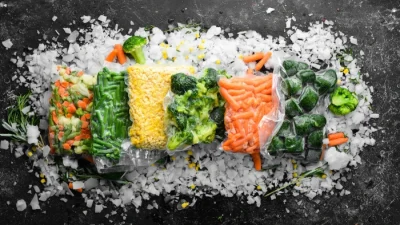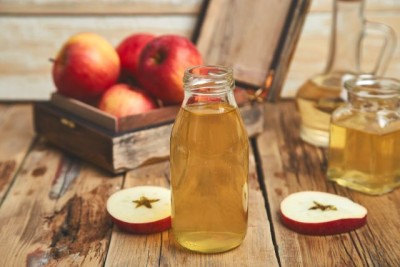Protein Powders – What do They Do?
Warning: Undefined variable $post in /home/dietofli/public_html/wp-content/plugins/code-snippets/php/snippet-ops.php(584) : eval()'d code on line 3
Warning: Attempt to read property "ID" on null in /home/dietofli/public_html/wp-content/plugins/code-snippets/php/snippet-ops.php(584) : eval()'d code on line 3
The estimated reading time is 6 minutes
Warning: Undefined variable $post in /home/dietofli/public_html/wp-content/plugins/oxygen/component-framework/components/classes/code-block.class.php(115) : eval()'d code on line 3
Warning: Attempt to read property "ID" on null in /home/dietofli/public_html/wp-content/plugins/oxygen/component-framework/components/classes/code-block.class.php(115) : eval()'d code on line 3
Protein powders and shakes are more popular today than ever before. If you happen to be a casual gym-goer, you’ve probably often heard the more muscular guys at the gym discussing protein supplements and the benefits of protein when it comes to building muscle and being more athletic.If you want to know what the fuss is all about, you’ve come to the right place, because I am going to tell you all about vegan protein powders and the benefits you can gain from implementing them into your diet in order to boost your gains.
Types of Protein Powders
Protein powders are nothing more than concentrated protein sources derived from plant or animal products.
They come in three different forms: concentrates, isolates and hydrolysates. The main difference between them is the level of protein concentration they hold, as well as the amounts of other nutrients (such as carbs and fats) present within them.
They are made from extracting protein nutrients from foods. Each of these has different levels of concentration, containing more protein and less fats/carbs.
- Concentrates are about 60-80% protein and 20-40% carbs and fats
- Isolates are typically 90-95% protein and 5-10% carbs and fats
- Hydrolysates are also 90-95% protein, however, this type is absorbed faster by the body and muscles, making it more efficient.
It’s important to keep in mind that protein powders are not necessarily essential to one’s diet; in fact, you may already be getting more than enough protein from what you presently eat.
However, particularly for people who are quite athletic and would like to see substantial gains, protein powders may be what they need to see those improvements and also to help keep low fat levels.
As mentioned above, protein is derived from either plant or animal sources. Here are five of my favourite types of protein:
- Whey Protein. Whey comes from milk and is quite high in protein, despite also containing lactose – which many people have difficulties digesting.
The main benefits of whey protein are that it is digested quickly by the body and that it may reduce appetite and increase fat loss. Check this post for more information about whey protein.
2. Casein Protein. Casein protein, like whey, is also derived from milk. The main difference between the two is the rate of absorption, which is much slower with casein.
Basically, casein’s slower digestion slows down the emptying of the stomach and reduces the rate of muscle protein breakdown, which promote muscle growth and fat loss.
3. Egg Protein. Egg protein comes from – you guessed it – eggs. Eggs are excellent sources of protein, and egg protein is quite easy to digest.
The main drawback of egg protein is that due to its low fat levels it may not leave you feeling very full, which may cause you to want to eat more.
4. Hemp Protein. Hemp protein is slowly gaining significant popularity, and although hemp is related to marijuana, a hemp protein shake will probably have no psychoactive effect whatsoever.
Although it contains some important fatty acids (omega-3) it is not considered a complete protein.
5. Pea Protein. The last item of this list is pea protein. Firstly, it’s worth mentioning that for vegetarian or vegan people, the plant-based protein powders in this list are excellent options.
Some studies have in fact shown that pea protein may be just as effective in increasing muscle mass as whey protein.
How Protein Affects Your Physiology
Protein is one of the most important nutrients your body needs – not just to build muscles, but for all sorts of biological mechanisms that go on inside of it – from tissue repair to making enzymes and hormones to being an essential component of every single cell.
But how does protein actually affect your physiology in relation to building muscle, losing weight and staying fit?
Weight Loss
Firstly, let’s talk about weight loss. Studies have shown that by having a consistent protein intake, your appetite levels will be reduced, meaning that you will be less likely to consume more food, resulting in smaller meals with more time in between them. In this sense, protein can be seen as a sort of antidote to junk food cravings.
Furthermore, protein increases your body’s metabolic rate. This is because protein takes more energy to digest compared to carbs and fats, thus increasing the number of calories burned.
Muscle Building and Muscle Repair
Now let’s turn our attention to what is probably the more relevant topic for people interested in the benefits of protein powders – muscle building.
Protein is the nutrient when it comes to getting ripped. First of all, your muscles are made of proteins – muscle cells contain protein filaments of myosin and actin that work together using friction to produce force and motion.
When you work out – lifting weights, for example – you are essentially creating small tears in your muscle filaments. Contrary to common sense, you are not actually increasing the size of your muscles while working out.
Your muscles become larger in size only after you are done doing exercise when it’s time to recover and your body repairs the tissue that was previously damaged. The essential component of this tissue repair process? Protein, of course.
By taking protein powder, you essentially increase the effectiveness of this process. After you are done exercising, your body sends amino acids to the areas in need of repair in order to stimulate the growth of new muscle fibres.
Conclusion
Protein is one of the most important building blocks of life, and protein powders are an incredible invention that can benefit many people by supplementing their workout routines with much needed nutrients.
Despite this, remember that they are not a prerequisite for being muscular or athletic, and that you may already be getting enough protein in your diet. You may want to consult your GP before you make any drastic changes to your diet. I hope this was helpful!
References:
- https://www.webmd.com/vitamins-and-supplements/features/protein-powder#1
- https://www.independent.co.uk/life-style/how-do-protein-supplements-work-8443074.html
- https://www.nhs.uk/live-well/healthy-body/body-building-sports-supplements-facts/
- https://www.medicalnewstoday.com/articles/263371.php
- https://www.healthline.com/nutrition/best-protein-powder#section7
- https://www.verywellfit.com/are-you-eating-for-muscle-3121316
- https://www.webmd.com/men/features/benefits-protein#1














